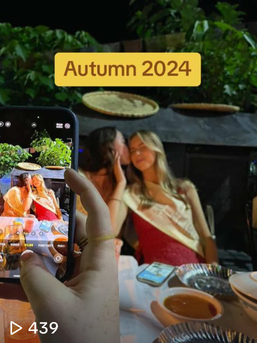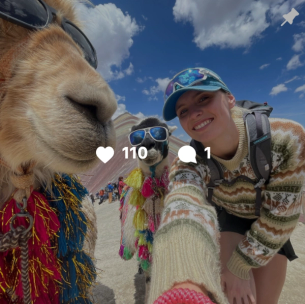Studentblogg
Filtrer
Vi kunne ikke finne noen resultatet som matcher filtreringen din.
Vi kunne ikke finne noen resultatet som matcher filtreringen din.


Nysgjerrig på hvordan det er å studere i utlandet?
Få et innblikk i studentenes opplevelser i de ulike studielandene! Hvert semester tar studentene over kontoen vår på TikTok og Instagram.
Ta testen
Finn det perfekte studiet basert på det som er viktig for deg.
Kom i gang
Klar for å se verden? Send inn en uforpliktende søknad, så tar vi kontakt med deg og hjelper deg på veien videre.